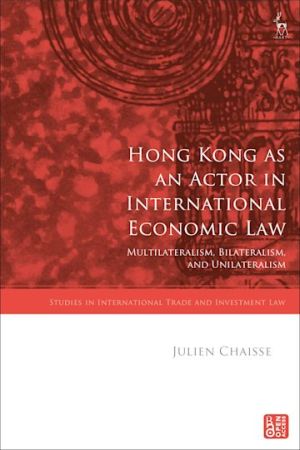
This open access book explains why Hong Kong adopts a triangular approach (combining unilateralism, bilateralism, and multilateralism) in its external trade and investment relations.
The book describes how Hong Kong applies the methods necessary to manage the triple-track strategy, and identifies the legal, political, and economic implications of this approach.
Hong Kong is one of the top trade centres globally and plays a pivotal role in the world economy, providing, in particular, a bridge jurisdiction where the dynamic nature of polycentric trade deals becomes more deeply embedded within a system inside and outside of it. Despite this major role, Hong Kong remains largely understudied by trade lawyers. Exploring these relationships in the context of Hong Kong's trade strategies facilitates a clearer description of the evolving role of Hong Kong in contemporary regional and global affairs, leading to recommendations on how Hong Kong can improve its effectiveness in securing its regional policy goals.
The book analyses how Hong Kong negotiates internationally and implements a different approach from models based on observations of single states as well as in American and European institutional and cultural settings. The analysis in this book makes an important contribution to understanding the character and modalities of multi-dimensional trade strategies that are shaping international trade relations today.